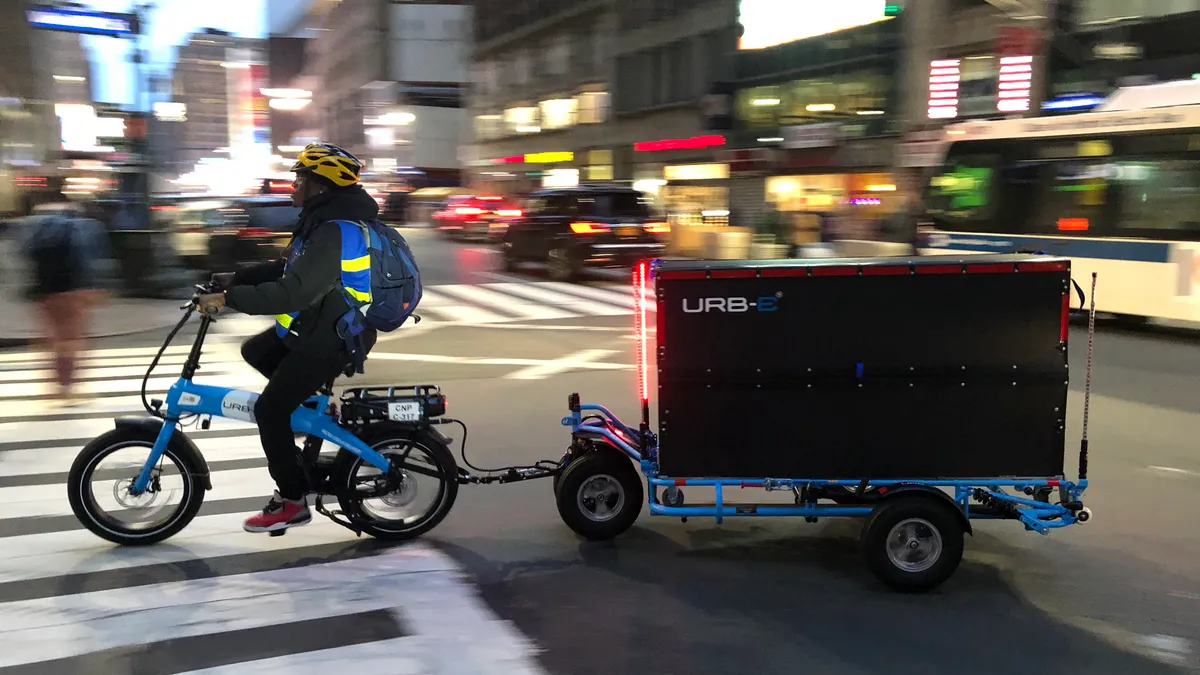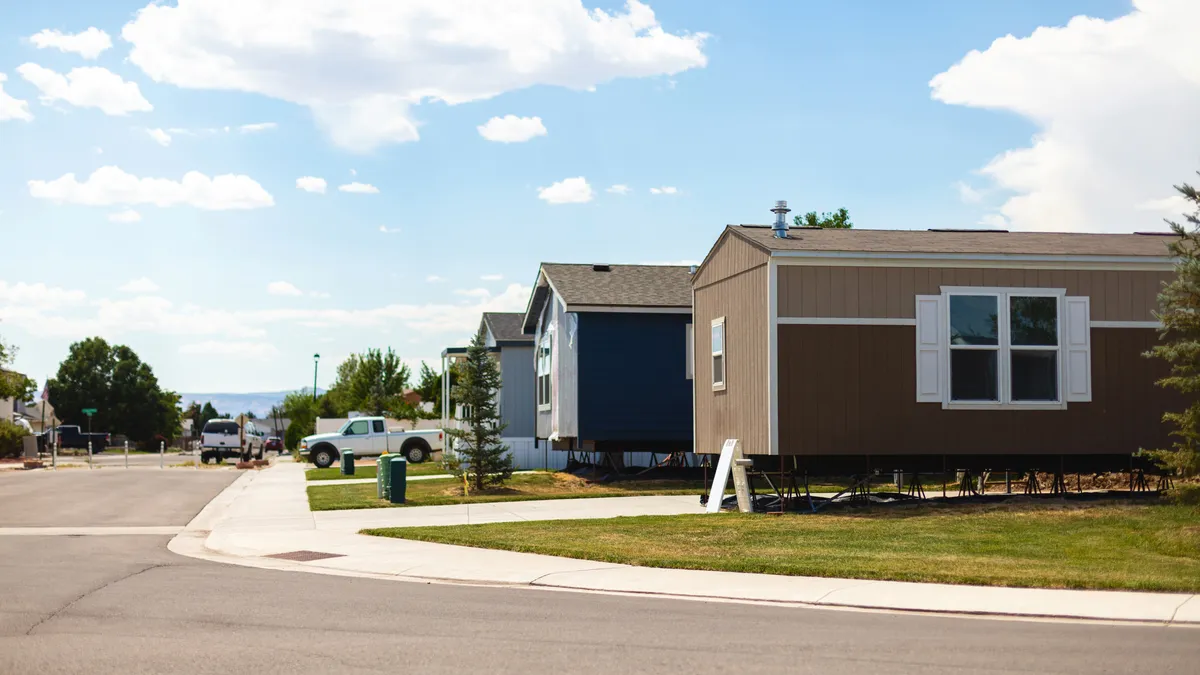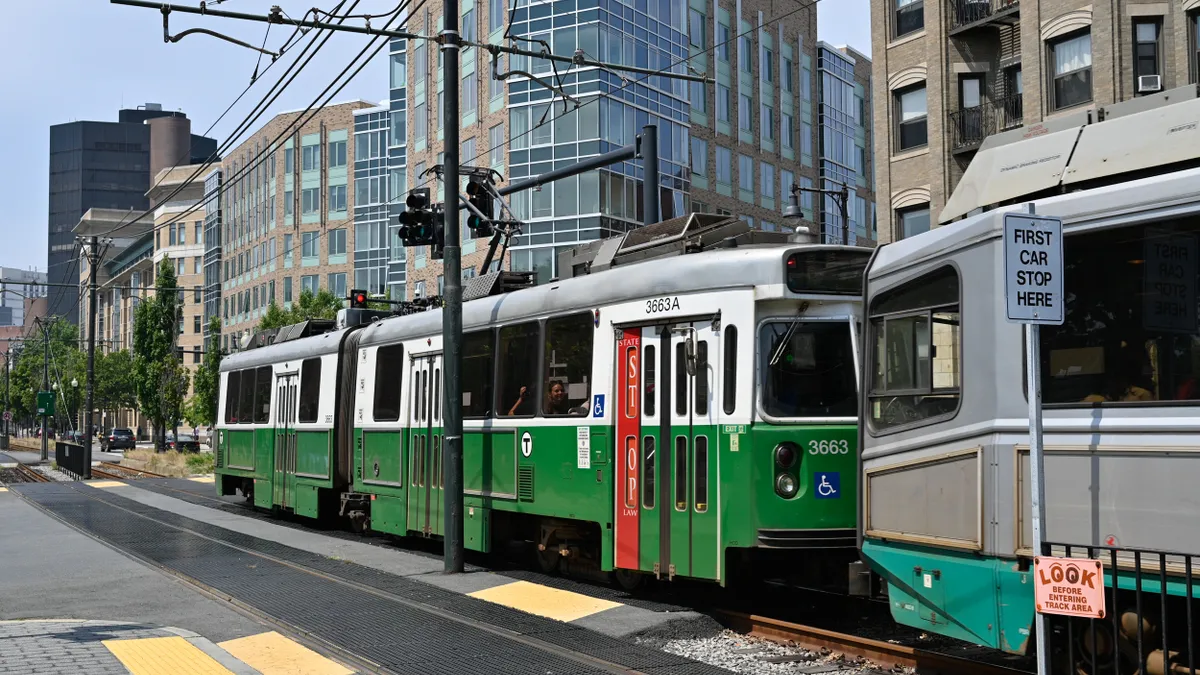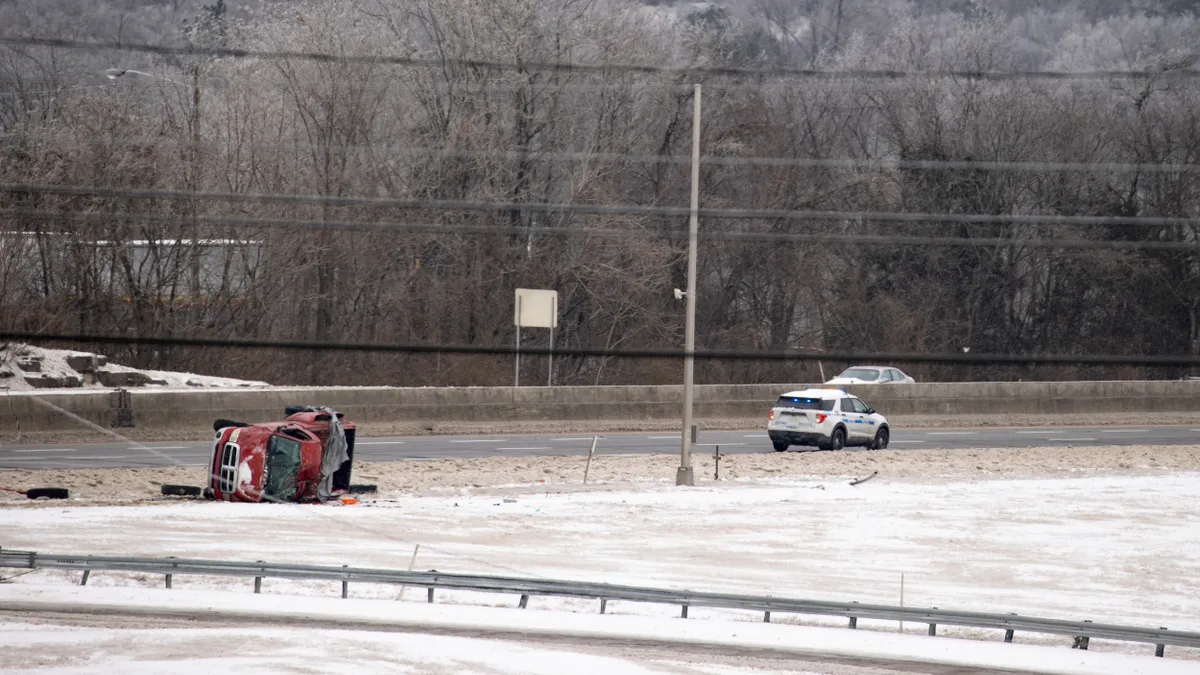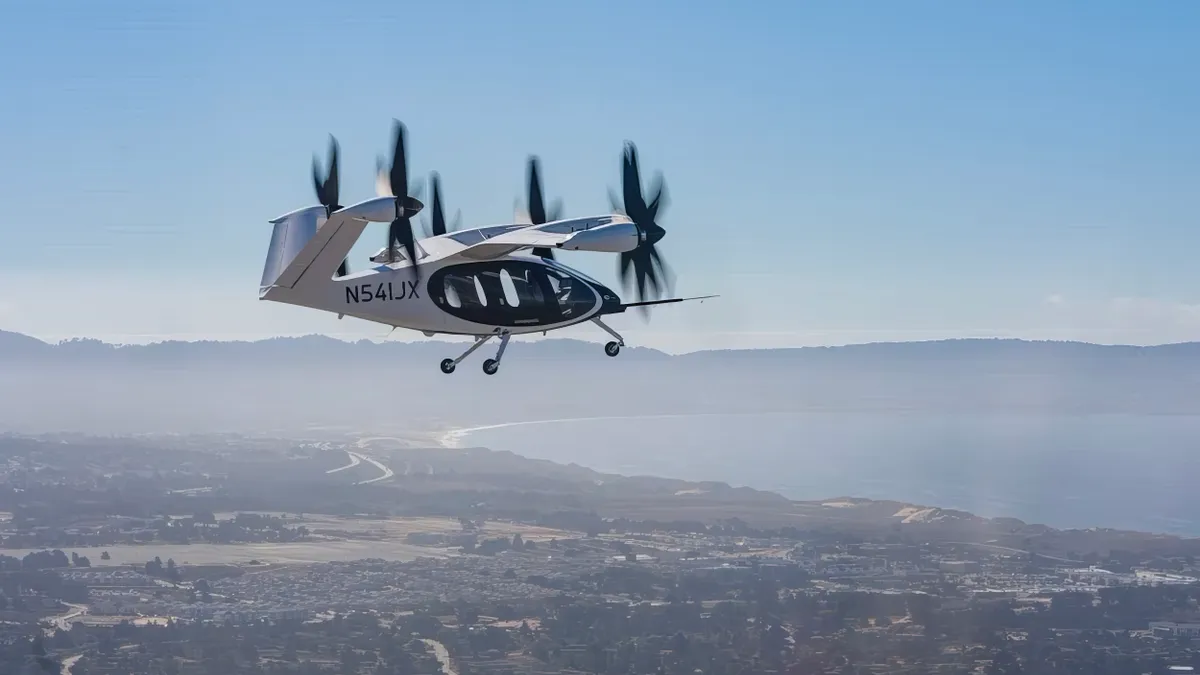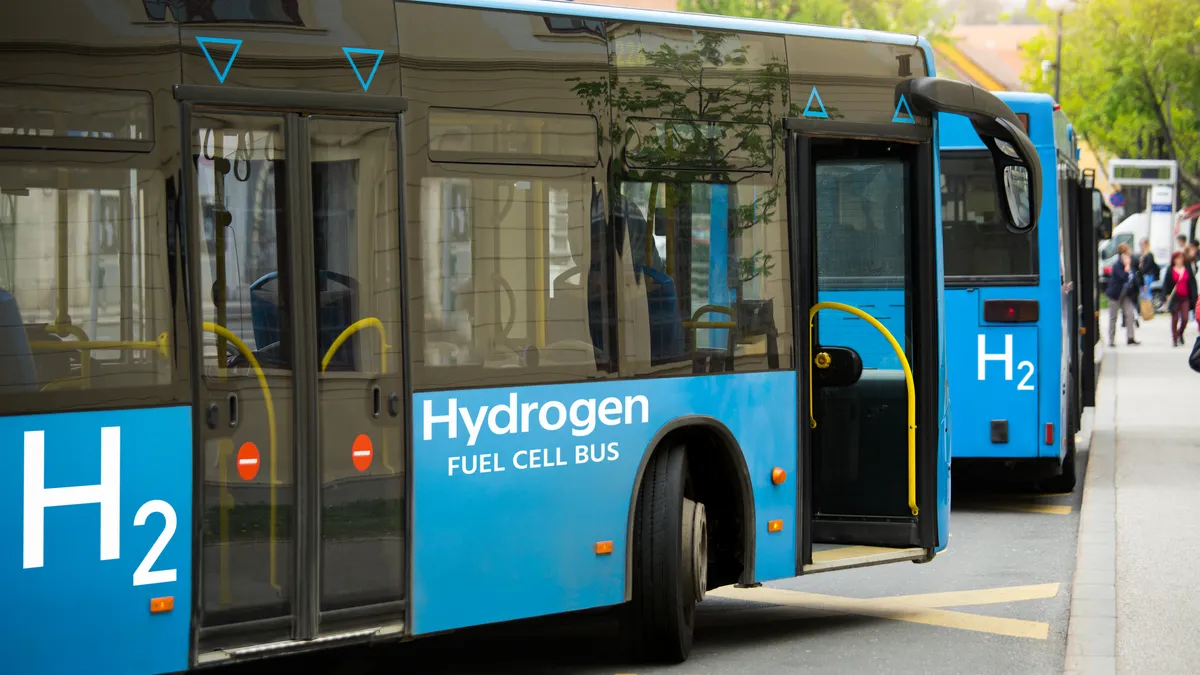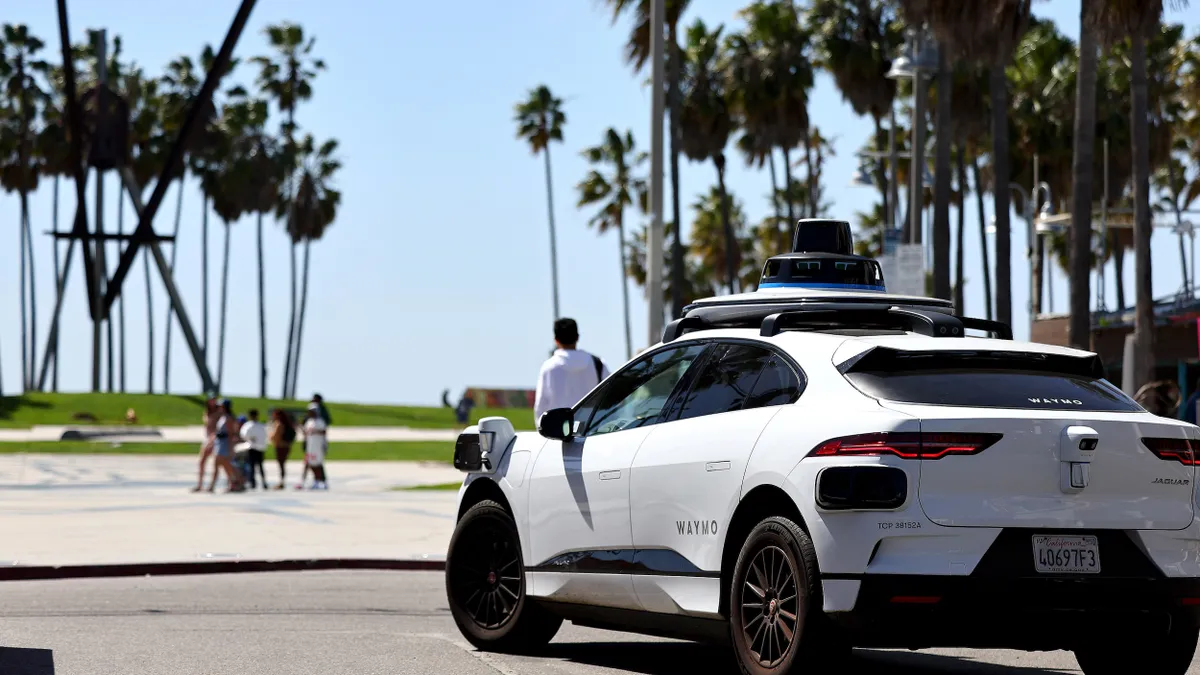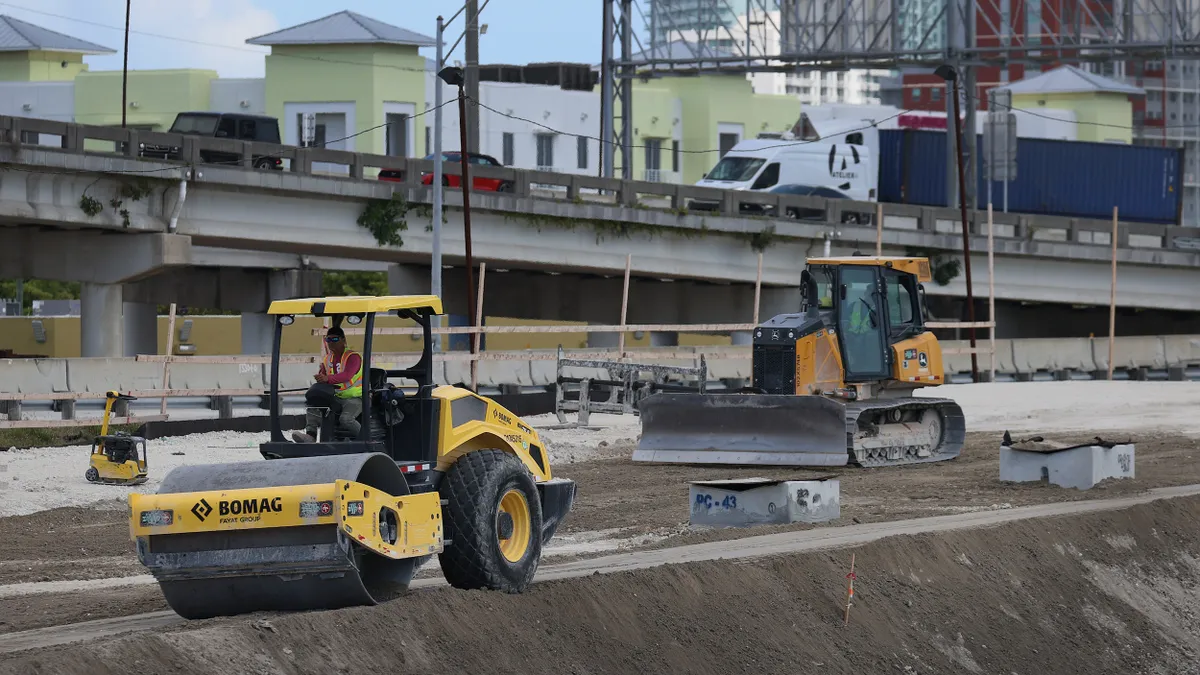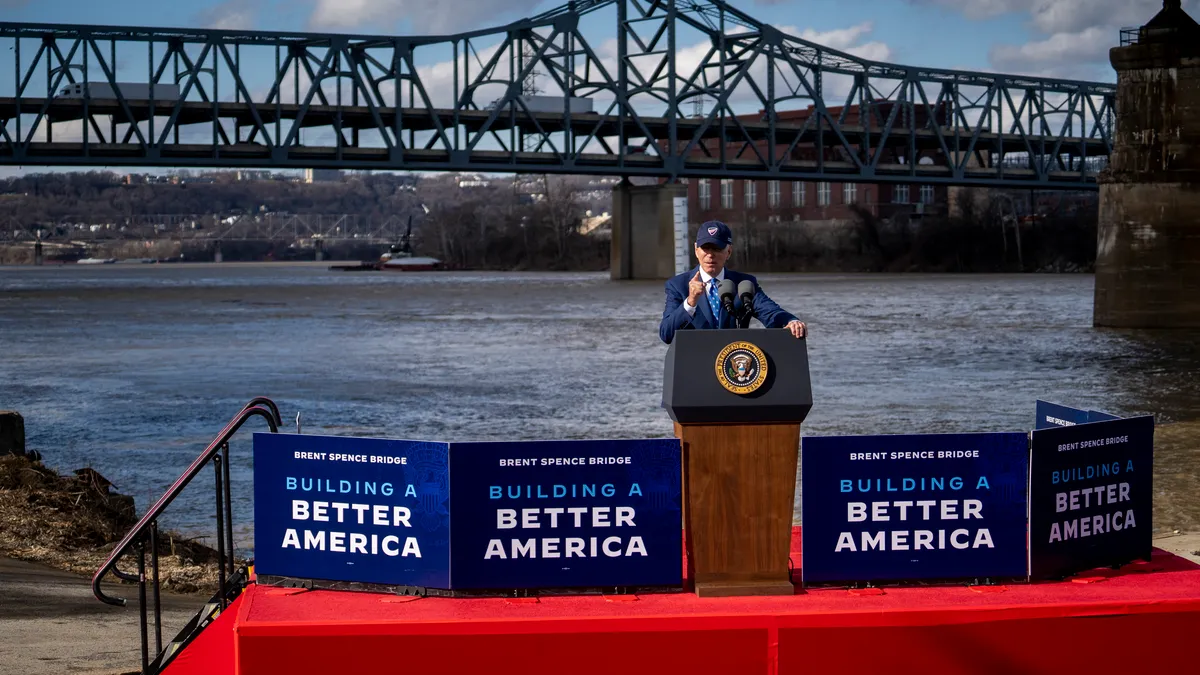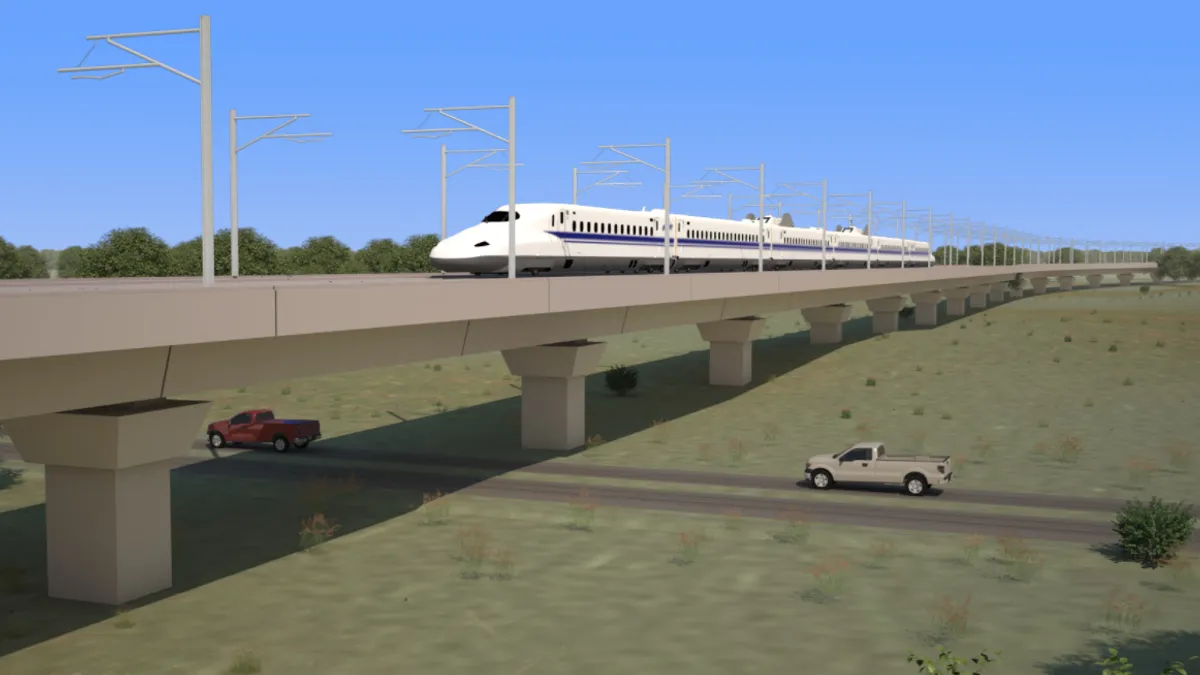Rolling along the busy streets of New York City, an electrically driven fleet of foldable cargo carts is quietly laying the groundwork for a California startup's vision of the future of grocery delivery.
Propelled by battery-powered bicycles expressly designed to tow heavy loads, the compact containers designed and owned by Los Angeles-based URB-E can each haul 800 pounds of goods for a fraction of the cost of using a conventional van, said Charles Jolley, an investor in the firm who became its CEO in March. Twenty of the blue carts, which are designed to be maneuvered through a typical grocery store, can fit into a single parking space when not in use, according to the company.
"The idea is you load your bags straight into this cart, and when it's time for them to be delivered, a bike comes up and they go off and do the deliveries," said Jolley, adding that to minimize idle time, riders leave an empty delivery cart behind when they pick one up. URB-E currently has about 1,800 containers circulating in New York.
A focus on electric technology
URB-E's concept is built on the company's theory that using small electric vehicles instead of trucks propelled by gasoline or diesel engines to bring grocery orders from stores to customers is the key to boosting margins on delivery orders for retailers. The firm's bikes, which are equipped with 750-watt mid-drive motors and can travel up to about 12 mph, can each transport up to four times their own weight in cargo, Jolley said.
"Last mile has to be electric, and it probably can't be [done with] vans … there's not enough lithium in the world to replace all the gas vans with electric ones, so we have to have something that's much more efficient," said Jolley, referring to the naturally occurring material at the core of rechargeable batteries used for electric vehicles.
Delivery fees have been an impediment to many consumers adopting the service, with many opting for curbside pickup instead. Jolley said his goal is to bring down the cost of a delivery from between $5 and $10 to as little as $2 or $3. "At that point, you're talking about grocery delivery that is almost free to the customer," he said.
Jolley emphasized that while URB-E is dedicated to using electrically powered vehicles to move its carts, it is not tied to bicycles. "The electric bike is what we think is right for New York," he said. "But the reason we define [the business] that broadly, and the systems mix and match, is so we could switch the bike for something else" in areas where weather, terrain or other factors make bikes impractical.
The company is also open to using autonomous vehicles that are electrically powered, he said.
Renting by the hour
Rather than sell its bikes and carts to retailers, URB-E rents the equipment on an as-needed basis for a fee of about $5 per hour in addition to charging a reservation fee that guarantees their availability to users. "We're really motivated to make sure these are extremely reliable because we pay the price, as much as the customer does, if we're having to do rescues or repair things," Jolley said.
URB-E is also considering allowing people to rent the company's equipment on their own and use it to make deliveries as independent contractors.
The carts were designed by Sven Etzelsberger, a former designer for Porsche as well as Fisker, an electric vehicle maker. Etzelsberger co-founded URB-E and now serves as the company's chief technology officer.
A former engineer for Apple, which is renowned for its sharp focus on controlling the customer experience for its products, Jolley said he places particular importance on providing a turnkey service rather than selling the equipment to URB-E's customers. "If you're going to do a new category, you need to really be able to control all the pieces together so that you can really build the right thing," he said.
In addition to working for Apple, Jolley ran Facebook's Android app as head of platform for that company. He also founded and sold two tech firms to the social media service.
"There's not enough lithium in the world to replace all the gas vans with electric ones, so we have to have something that's much more efficient."

Charles Jolley
CEO of URB-E
Jolley declined to say which grocers URB-E is working with, but indicated the company's current customers are retailers that already have delivery operations and want an alternative to vans to transport orders to customers.
"They contract directly with us to get access to our fleet. And what that usually means is that they're able to take cars, bikes and a bunch of other equipment off their balance sheets and free up that cash because now they're just paying for this as a subscription. It otherwise doesn't change anything else," he said
URB-E currently operates a yard to store its carts and bikes in mid-Manhattan, and plans to open other depots elsewhere in Manhattan as well as in Brooklyn, New York.
In addition to its operations in New York, URB-E has for several years been testing its equipment in Pasadena, CA, Jolley said. The company is now looking elsewhere in the Los Angeles area to expand, and hopes to begin making its services available in Santa Monica later this year. URB-E is also considering entering the downtown Los Angeles delivery market.
"Our goal is to one day have an URB-E delivery network in every neighborhood in the world, excluding really rural areas that may not need us as much," Jolley said.
URB-E announced in March that it had closed a $5 million Series A funding round with UBS Group as part of the company's effort to prove its business model.
"The real purpose of this funding round was to establish some base of operations, understand our economics and make sure that we could really scale efficiently," said Jolley, adding that the company will be looking to raise additional funds to fuel its expansion.
URB-E is not the only company employing electric bicycles to maximize efficiency in delivering groceries to consumers. Fridge No More, a Brooklyn-based startup that offers 15-minute grocery delivery in the Williamsburg and Park Slope neighborhoods using a network of "cloud stores," launched in October using e-bikes. In March, the startup announced that it had raised $15.4 million in a Series A funding round.
Food retailers are also experimenting with other kinds of battery-powered delivery vehicles. In March, Albertsons announced that it is piloting remote-controlled electric carts from Tortoise at a pair of Safeway stores in California, while Kroger said in November that it would test autonomous electric vehicles in partnership with self-driving car company Cruise.



